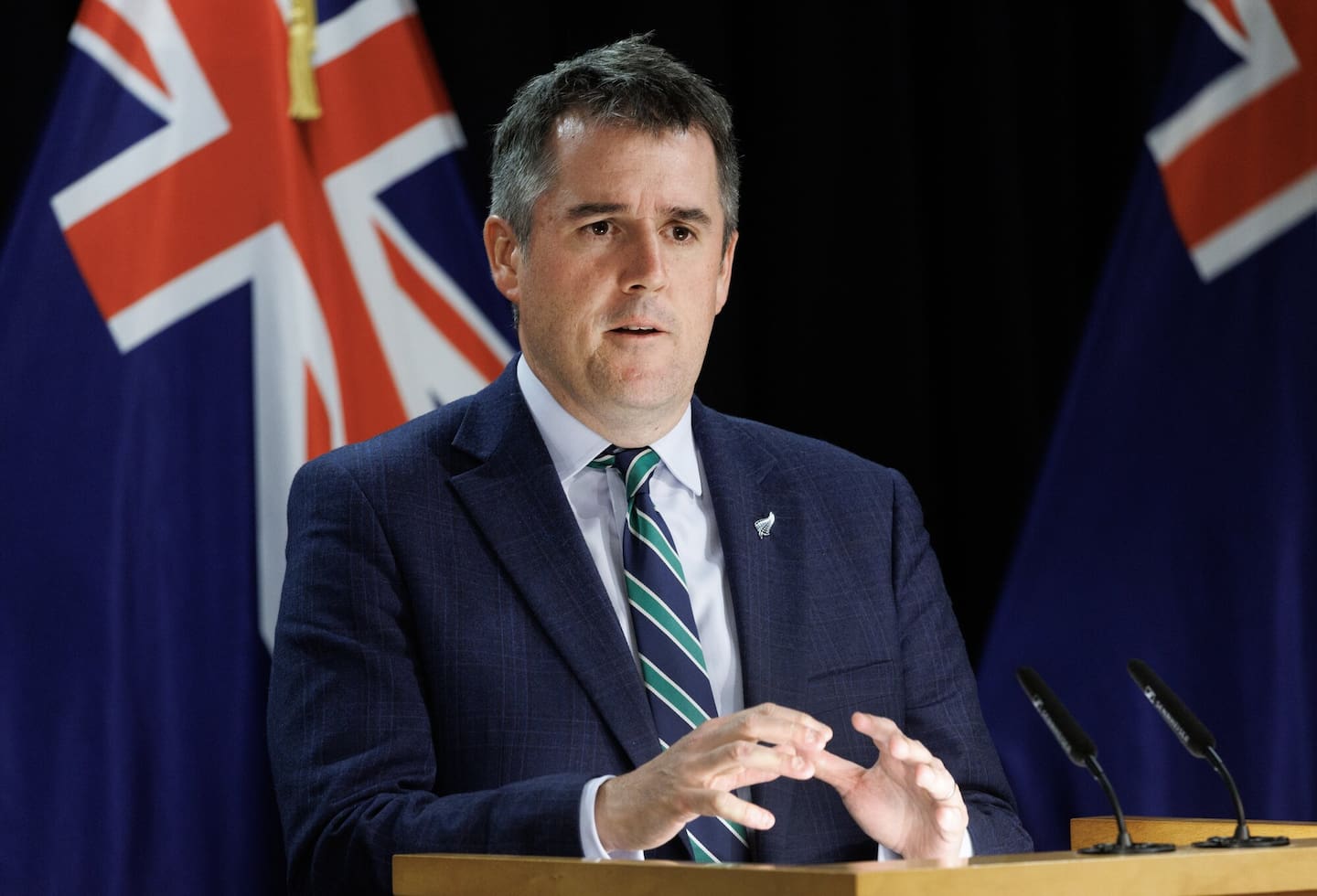
The Government is opening public consultation on what it says amounts to the biggest changes in New Zealand history to national directions on the likes of freshwater, infrastructure and the primary sector.
Among the changes being proposed are new standards to allow commercial vegetable growers to grow food within a catchment without having to get resource consent, clarifying what a wetland is, enabling more papakāinga housing and clarifying consent pathways for mining and quarrying.
The long list of proposals are found across three discussion documents being released on the Ministry for the Environment website today.
They make changes to national directions, which are rules and policies found under the Resource Management Act (RMA) that inform how councils develop and implement local plans and rules.
Chris Bishop, the minister in charge of RMA reform, said the current regime was a “direct contributor to New Zealand’s infrastructure deficit”, driving up costs, slowing down projects and overall, a “complicated nightmare for councils and applicants alike”.
“Sorting out our planning rules is critical to boosting economic growth and improving living standards,” he said.
 RMA Reform Minister Chris Bishop said planning changes were necessary to economic growth. Photo / Mark Mitchell
RMA Reform Minister Chris Bishop said planning changes were necessary to economic growth. Photo / Mark Mitchell
Bishop said the Government had repealed Labour’s previous attempt at reforming the RMA and made a series of “quick and targeted amendments” to remove what it believed were “unnecessary regulations” to the likes of primary industries and barriers to investment.
“We also passed the Fast-track Approvals Act to make it much easier to deliver infrastructure and other development projects with significant regional or national benefits. The first projects are already going through the fast-track process.
“Next year we’ll replace the RMA with new legislation premised on property rights. Our new system will provide a framework that makes it easier to plan and deliver infrastructure and energy projects, as well as protecting the environment.”
The changes being proposed today are to the national directions under the current RMA and are intended to give effect to a range of coalition commitments in a way that can be done “quickly and relatively easily”.
Bishop said this will “unclog the growth arteries of the economy” and be able to transition to the new RMA system once that is legislated and implemented.
Consultation on the proposals being outlined today will be open until July 27, with the Government intended to have 16 national direction instruments in place by the end of the year. Twelve of these are current instruments proposed for amendment, and four are new.
 The primary sector is one of the areas of focus. Pexels / Cottonbro studio
The primary sector is one of the areas of focus. Pexels / Cottonbro studio
Freshwater
One of the discussion documents being released today relates to the national direction on freshwater management and use.
Andrew Hoggard, an associate environment minister, said New Zealand’s freshwater system must protect the environment while also supporting people who feed and grow New Zealander.
He said the current rules are “too complex, too expensive, and too often ignore the practical realities of landowners”. Those were being fixed with these changes, Hoggard said.
“The current system’s Te Mana o te Wai has caused frustration across rural New Zealand, with some councils applying it in a way that sidelines the very people working to improve water outcomes,” the associate minister said.
Among the proposals is to “rebalance” Te Mana o te Wai to allow councils more flexibility in how they manage freshwater, enable councils to tailor their monitoring and management to local conditions, and ensure planning is more relevant to the local communities and resources.
Better provisions for commercial vegetable growing are proposed, such as to direct councils to consider how to help ensure a stable domestic food supply and permitting commercial vegetable growers to grow food or rotate crops within a catchment without resource consent.
Andrew Hoggard says freshwater management rules need to change. Photo / Alex Burton
Regulatory blocks to water storage would be removed that the Government says would help mitigate the impacts of droughts and climate change, support ecosystems by maintaining water flows during dry periods, and reduce the need for over-extractions from natural water bodies.
Wetland regulations would be simplified, including clarifying the definition of a wetland by excluding unintentionally created ‘induced’ wetlands from provisions, defining constructed wetlands, and removing a requirement for councils to map wetlands by 2030.
There are also other proposals intended to protect drinking water resources, simplify fish passage requirements, among others.
Quarries and mines
Provisions for quarrying and mining are found across several National Policy Statements and environmental standards, which the Government is proposing changes to.
Bishop said that for New Zealand to build and maintain more infrastructure, “we need quarries and mines” and the RMA makes it “far too difficult” to consent these types of projects.
“Addressing this is critical to boosting economic growth, improving living standards and meeting future challenges posed by natural hazards and climate change,” he said.
The proposals appear technical in nature, but the Government says they remove duplication and provide more clarity.
“The Coalition Government is committed to utilising New Zealand’s mineral reserves to boost regional opportunities and jobs, increase our self-sufficiency, improve energy security and resilience, and drive our export-led focus for economic recovery,” said Resources Minister Shane Jones.
“The length of time it takes to navigate various consenting processes for a major mining project in New Zealand is costing us dearly in missed economic opportunities that could lift living standards for our regional communities and supercharge productivity.”
“A mining operator currently needs to navigate the often contradictory and confusing requirements of many national direction instruments. By amending these instruments to remove duplication and provide more clarity, we are reducing costs and inefficiencies and providing the certainty potential investors and operators need to take well-designed projects forward – something our regulatory regime has long lacked.
“I want to be clear - we are cutting red tape and barriers, not corners. There are no shortcuts in terms of robust planning and rigorous consideration of environmental protections.”
Infrastructure, energy
The Government is proposing a suite of changes to infrastructure and energy legislation and policy.
Bishop said the new policy would “send a clear message” that infrastructure was critical and existing and new infrastructure should be prioritised in resource consent processes.
A new policy approach to renewable energy is also being considered.
“The current [policy statement for renewable electricity generation] was drafted in 2011 and is far too vague and woolly. Decision-makers need clear guidance that renewable energy is vital to our prosperity,” said Bishop.
“We need billions of dollars of investment in the coming years in renewable energy supply but it’s too hard to consent renewable energy projects,” he said.
New policy for natural hazards is also being proposed.
Energy Minister Simon Watts said councils needed to make better choices about where and how people built so new developments were more resilient to severe weather events.
“Further direction to councils around how to identify, assess and respond to risks from natural hazards can be provided as part of the next stage of resource management reform”.
 Associate Housing Minister Tama Potaka said the changes would make consenting standards uniform across the country. Photo / Mark Mitchell
Associate Housing Minister Tama Potaka said the changes would make consenting standards uniform across the country. Photo / Mark Mitchell
Papakāinga
The Government is proposing removing resource consent requirements for small-scale papakāinga developments.
Papakāinga is housing – such as homes and marae – on customary and communally owned Māori freehold land.
The Government says the current rules are inconsistent and prevent landowners from using their land to house whānau, to exercise autonomy of their own land and to build wealth.
Associate Housing Minister Tama Potaka says the would introduce a consistent national framework, called the National Environmental Standards, that would introduce consistent standards across all Papakāinga land, regardless of what council district is came under.
“If accepted, consenting standards would become uniform across the country, regardless of which district plan the land falls under, and small-scale - up to 10 homes - papakāinga would no longer require resource consent,” Potaka said.
“Papakāinga provide multiple benefits to whānau, hapū and Iwi. As well as economic, social, and wellbeing benefits, papakāinga provide holistic and cultural benefits because our connection to the whenua is such a key part of being Māori.”
The proposal follows the Government loosening consent rules around granny flats with building consent exemptions for small standalone dwellings expected to come into force next year.
“This proposal would also complement our granny flats policy. Together the two proposals provide options for Māori to build on their existing assets,” Potaka said.
“While the papakāinga development provides more scope for multiple homes on communally owned Māori land, the granny flats policy provides an option for homeowners to build one additional dwelling on their residential property without consent building or resource consent.”
Primary sector
The proposals in the primary sector discussion document are intended to “make it easier to invest on-farm, lift productivity, and build long-term resilience in the face of weather and market challenges,” said Agriculture Minister Todd McClay.
“It’s about freeing farmers to do what they do best - producing high-quality food and fibre for New Zealand and the world - without being buried in paperwork,’ he said.
“The Primary Sector package proposes changes to eight national direction instruments. These changes will remove the restrictions on non-intensive grazing of beef cattle and deer in wetlands, streamline changes to consent conditions for the aquaculture sector, reduce inefficiencies for the forestry sector and better enable priority activities in coastal areas.”
Hoggard highlighted the “significant costs on farmers to fence off cattle and deer from wetlands on low intensity properties was way out of proportion to the environmental risk”.
“This proposed change is another step to cut red tape for farmers and let them find solutions that work for their farm, and their catchment.”
Take your Radio, Podcasts and Music with you









